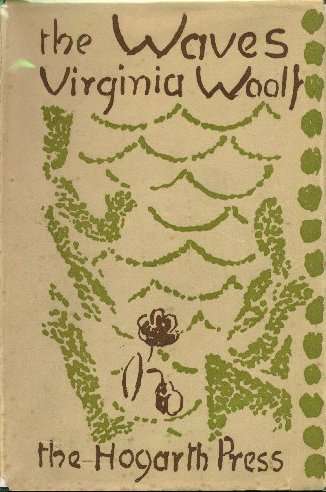The MPhil in English Studies
Our plenary MPhil, comprehensive in scope, offers you the chance to be a part of a single, integrated MPhil community whilst also providing unparalleled opportunities for specialisation and self-definition.
About the MPhil
The Cambridge English Faculty’s collaborative MPhil in English Studies is a nine-month taught course which offers a uniquely wide-ranging and innovative approach to the study of literature, criticism and culture in the Anglophone world.

1st edn, available in seven Cambridge
college libraries.
King’s College holds the copy Woolf gave to E. M. Forster.
This plenary MPhil unites all our Masters students in a single graduate community under one unified course. Our versatile modular structure presents a multitude of Specialist Seminars, as well as both a Medieval and a Renaissance Textual Studies course. Together, these cater for a high degree of individual self-definition across an unrivalled range of research fields. Students studying on this programme can:
- prioritise a specific period, be that Medieval, Renaissance, 18th-century, Romantic, Victorian, Modernist, Post-war, or Contemporary; or move between periods
- emphasise regional, national, or international interests from across the Anglophone world
- concentrate on thematic, theoretical, conceptual, and philosophical concerns
- or fuse these different elements in creative combinations.
At the same time, our Research Frameworks seminars cut across these specialist emphases. They bring together students with diverse research interests, encouraging them to work collaboratively on cross-period methodological and inter-disciplinary topics. Students taking this programme thus find themselves working in two very different kinds of teaching group and reap the benefits of that breadth of provision.
In the MPhil as a whole depth, diversity, the historical, and the conceptual are each available in equal measure, and all this is underpinned by a sense of involvement in common intellectual endeavours shared between everyone taking the course. This blend of variety and unity will offer you a truly distinctive context in which to develop as a thinker, writer, and researcher.
The course is supported by first-class teaching delivered by a Faculty with a distinguished international reputation; and because that teaching is research-led we are also able to offer you a cutting-edge view of the discipline. Both small-group teaching and one-to-one supervision are established strengths here, having been foundational to the Faculty’s identity since its inception a century ago. Our lively, supportive seminars will allow you to learn from people with interests very different from your own. At the same time, your individual supervisor will help you plan a coherent programme of personal study and will oversee both your research for and writing of your dissertation (your own unique research project). In addition, a programme of focused training on research methods will assist you in developing practical study skills.
These qualities make our MPhil in English Studies an ideal preparation for further research in English and associated disciplines. Equally, the course can serve as the basis for success in a wide range of non-academic careers.
Life in the Faculty

Carsten Höller’s ‘Crocodile’, courtesy of Kettle's Yard,
the University’s modern and contemporary art gallery.
The Cambridge Faculty of English has a long-standing reputation for excellence in both historical and conceptual work. Members’ interests span the full range of literature in English, from medieval to contemporary. Specialisms include environmental humanities; lyric and the history, theory and practice of poetic forms; editing and textual scholarship; histories of the book and media institutions; world literature; post-colonial literature; philosophy and literature; Marxist literary theory; critical theory more widely; psychoanalysis and literature; the cognitive humanities; the digital humanities; performance theory; and visual culture. To learn more about particular members’ interests search our list of academic staff.
The Faculty is home to a vibrant research culture in which all MPhil students are encouraged to take part. Groups of students and Faculty staff with shared interests can participate in the Faculty's research 'Centres' (for example, the Centre for Material Texts, or the Judith E Wilson Centre for Poetics). Students and staff also participate in Research Seminars (for example, ‘Medieval’, ‘Post-colonial and Related Literatures’, ‘Queer Cultures’, ‘Eighteenth-Century and Romantic’) which welcome speakers both from within Cambridge and from other universities. Interdisciplinary seminars and reading groups take place at the nearby Centre for Research in the Arts, Social Sciences, and Humanities (CRASSH). There are also a number of research groups based in the Faculty.
MPhil students are free to attend the Faculty’s undergraduate lectures, and to consult the excellent resources and staff of the English Faculty Library. Students can also draw on the University’s language-learning facilities, including an ab-initio Latin course run annually, just prior to the MPhil course itself, and exceptional library resources and special collections, for example, at the University Library, one of only five copyright libraries in the UK.

